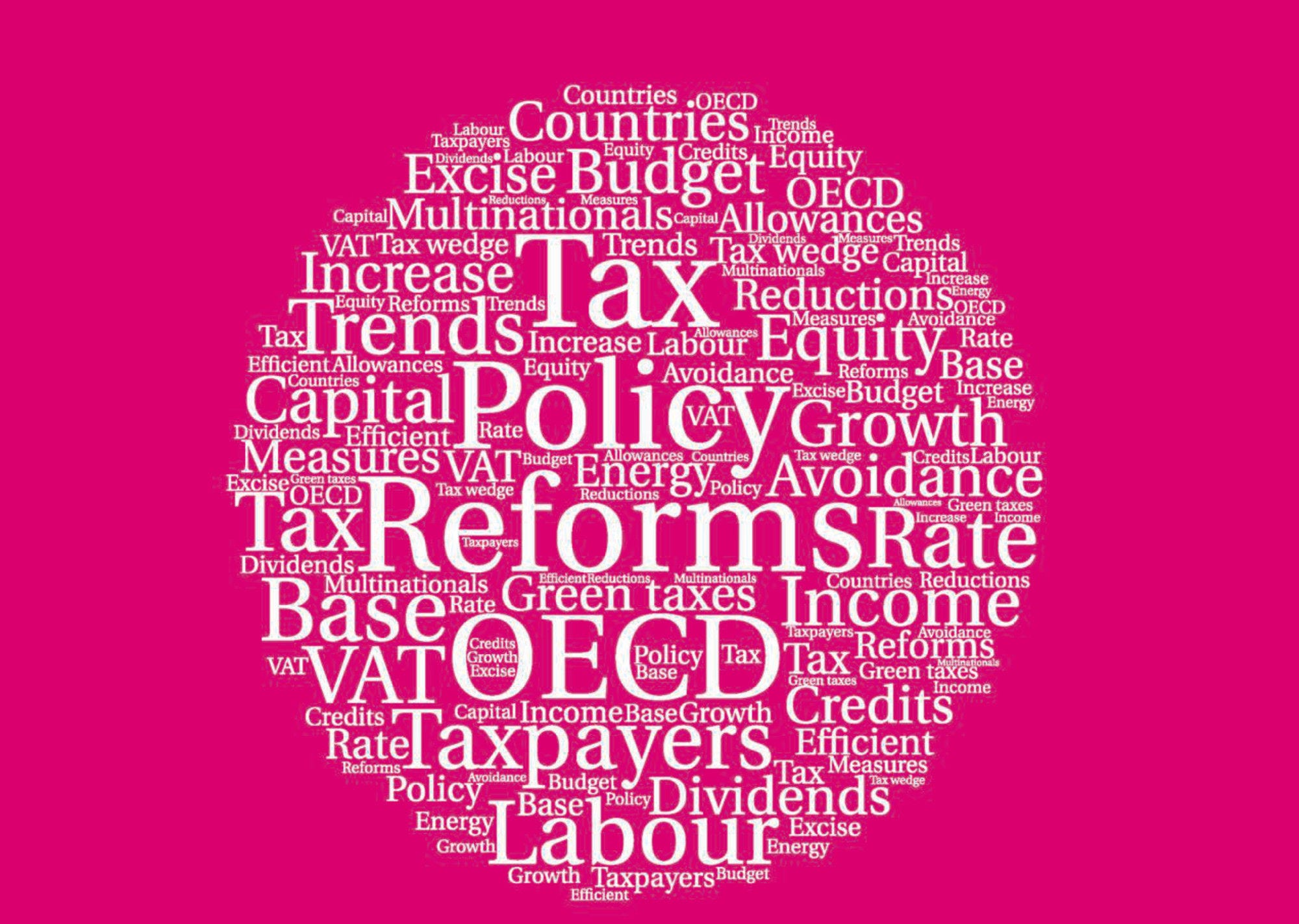The annual edition of the Tax Policy Reforms publication provides comparative information on tax reforms across countries and tracks tax policy developments over time in OECD countries and selected partner countries.
Country tax policy reviews and advice
The OECD provides independent, in-depth and comparative assessment of the effectiveness of a country’s tax system in meeting its policy objectives. This assessment is based on OECD tax modelling tools and country benchmarking, which use reliable and comparative data. By comparing the performance of the tax system against its current objectives, leading international standards, and the future demands created by structural changes, the OECD provides concrete, coherent and tailored tax policy recommendations to individual countries. Country tax policy work promotes policy dialogue among key national stakeholders to ensure an inclusive process and to support the implementation of tax reforms.

Key messages
OECD Tax Policy Reviews provide tailored tax policy recommendations to improve the design of a country’s tax system. The reviews are comprehensive but can also be tailored to specific taxes or tax policy topics.
Domestic resource mobilisation is an urgent priority for low- and middle-income countries as they seek sustainable sources of revenue to invest in their country’s development and attain the Sustainable Development Goals. The OECD assists low- and middle-income countries through various tax policy projects, including work on Social Protection financing, taxation and informality, taxation and spending coherence, illicit financial flows, and tax expenditure analysis. The Country Tax Policy Unit assists countries in building their own tax policy capacity.
The OECD organizes country-specific tax policy workshops to assess and discuss domestic tax reform options, promotes multi-stakeholder tax policy dialogue, provides training and supports capacity building of Tax Policy Analysis units within Ministries of Finance.
About
The ageing of the population calls for tax reform
Populations in OECD countries are ageing, and this has far-reaching implications for economic growth, productivity, inequality within and between generations and the sustainability of public finances. Health, old-age care and pension costs will be rising rapidly while, at the same time, tax revenues will be under pressure as less people will be at work. Countries need to take action. Getting ready for an ageing of the population requires tax reform that is aligned with the specific challenges that individual countries are facing.
Business tax regimes need to be aligned with international tax trends to maintain a business-friendly investment climate
Economies are changing rapidly in response to structural trends (automation, AI, shortage of labour supply, climate change mitigation), and the introduction of a Global Minimum Tax has changed the international tax context. These changes create challenges and opportunities for investment; it calls for business tax reform that takes country-specific characteristics into account.
Low- and middle-income countries need to raise more revenues to close the Social Protection financing gap
Most low- and middle-income countries face challenges in providing adequate social protection to all citizens. Social protection financing gaps have widened since the COVID-19 pandemic. Without appropriate tax policy reforms, there is a risk that social protection financing gaps will not be reduced or even widen further as countries face increasing burdens from demographic and climate change. Putting social protection financing on a solid footing will require measures that strengthen the formalization of economies.
The OECD Country Tax Policy Unit is carrying out studies for Senegal, Thailand, Cameroun and Guatemala on Social Protection Financing.
Latest insights
-
 Press release28 October 2024
Press release28 October 2024 -
 30 September 2024
30 September 2024 -
 Press release13 September 2023
Press release13 September 2023
Related publications
Related events
-
 Publication launch28 October 2024
Publication launch28 October 2024









